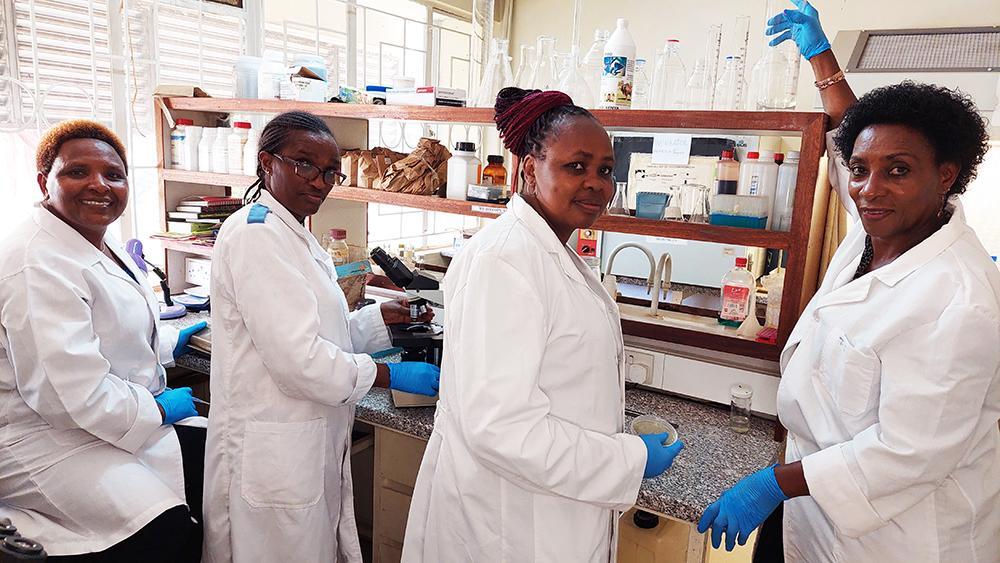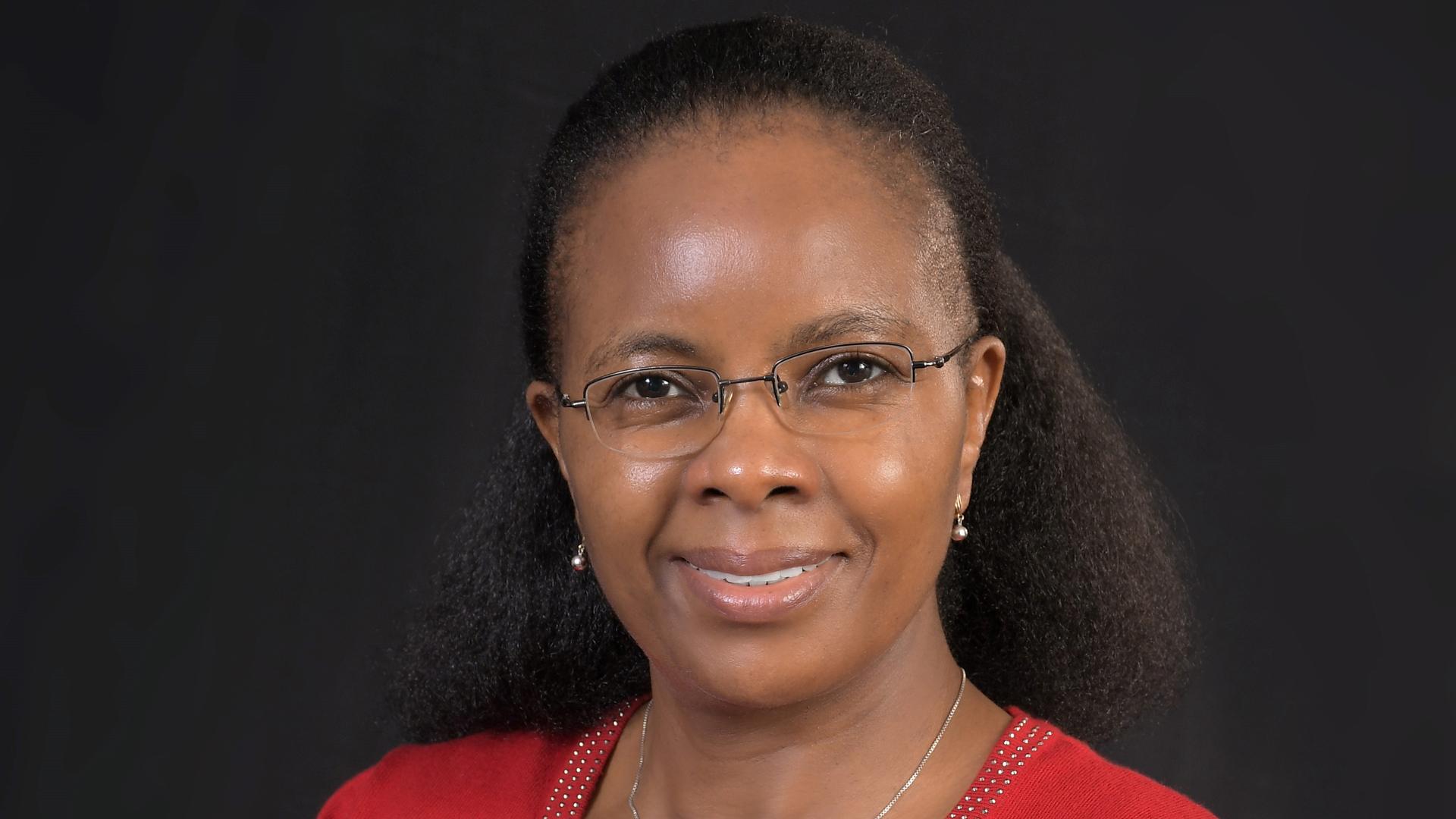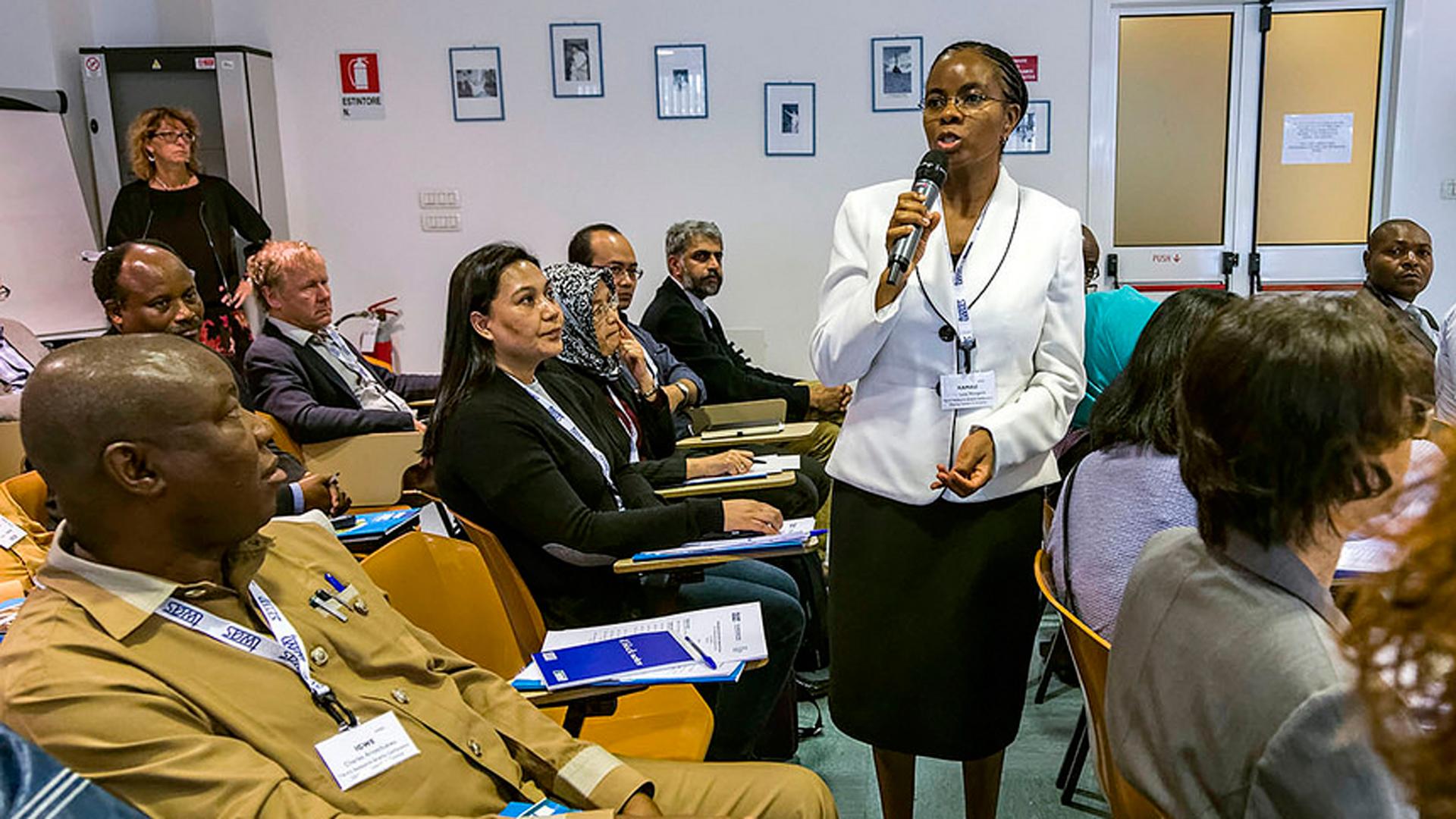For the ninth year in a row, 11 February marks the International Day of Women and Girls in Science. The UN celebration aims to bring attention to the gender gap that still exists, and to the notion that 'science is for everyone'.
According to UNESCO Science Report 2021, women have achieved parity (45–55%) at the bachelor’s and master’s levels of study and are close to parity at PhD level (44%). Unfortunately, on average, the gender gap tends to widen the further they pursue their career.

Supporting women scientists by easing their participation in the scientific endeavour is a core tenet of the TWAS mission. In 2021 and 2022, one of the Academy's most successful programmes—the TWAS-Sida Research Grants Programme—achieved a 50–50 gender balance. The Swedish International Development Cooperation Agency (Sida) stands as an essential supporter of TWAS programmes since 1991. And Sida-supported grants are a vital incentive to the careers of individual scientists and research groups.
TWAS also elected 50 Fellows to its 2023 class, 20 (40%) of which were women. Its current TWAS Council, which began work in 2023, also has perfect 50–50 gender parity and includes its first woman serving as president, Quarraisha Abdool Karim.
The Academy also manages a slate of awards that provide a powerful incentive for scientists to excel on new levels while bringing global recognition to the achievements of researchers from the developing world. In 2022, 12 (44%) of TWAS’s 27 awardees for excellence in science were women.
An example of TWAS support for women
Kenyan biomedical researcher Luna Kamau is a 2006 Sida grant recipient and a TWAS Fellow since 2018. She is currently the deputy director at the Centre for Biotechnology Research and Development, Kenya Medical Research Institute (KEMRI) in Nairobi, Kenya. But when she recalls the beginning of her career, many struggles come to mind.

"Being an African woman scientist is challenging, because most of the burden of home care and, of course, childbearing is on women," she said. "To advance in my career, I had to become resilient. From time to time, I had to face environments that were not gender sensitive. This forced me to develop coping strategies to ensure optimal performance."
The Sida grant that Kamau received served to compare different species of malaria-transmitting mosquitoes, and their role in the infection. A few years later, in 2019, mentioning the Sida grant, she applied for and was promoted to Chief Research Officer at KEMRI.
The grant, in fact, proved her ability to conduct independent research. It was instrumental in receiving other accolades, such as the KEMRI Gold (Nelion) Excellence Merit Award (2015) and, later the nomination as TWAS Young Affiliate. In 2016, she was among the participants in a short TWAS film that showcased the scientific achievements of Sida grantees.
"The Sida grant and the affiliation to TWAS, in 2018, allowed me to demonstrate that it is possible to achieve work-life balance and excel as an African female scientist," she noted. Today, part of Kamau's work is devoted to mentoring young female scientists: she is currently tutoring five female MSc and one PhD student.
Also, in 2023, she participated in a mentorship programme coordinated by the Pan African Mosquito Control Association in which she worked with a young female scientist from Zambia, for one year, for mutual growth.

Programmes for women in the TWAS ecosystem
During four decades of activity, TWAS has devised other programmes to support women in science, ensuring that they are inclusive, fair, and relevant to real-life scenarios.
In 2020, along with The Federal Ministry of Education and Research of Germany (BMBF), TWAS launched the Seed Grant for New African Principal Investigators (SG-NAPI) programme. The goal was to support early-career scientists from Sub-Saharan Africa, and in particular from Least Developed Countries. One SG-NAPI component is the 'Scientist after Child' scheme. It allows pregnant scientists and new mothers to receive extra funding to hire a lab assistant and benefit from reliable maternity leave support.
In 2022, TWAS and the Elsevier Foundation launched a women-focused programme called TWAS-Elsevier Foundation Project Grants for Gender Equity and Climate Action. In its first two years, 2022 and 2023, 15 women-led teams proposing gender equity and climate action projects received recognition.
The teams were from Bangladesh, Benin, Bolivia, Ghana, Guatemala, Kenya, Mozambique, Nepal, Nicaragua, the Republic of Congo, Tanzania, Uganda, and Zimbabwe. Both the 2022 and 2023 winners were announced during COP27 and COP28, the United Nations Climate Change Conference.
"These grants highlight that excluding half the world’s population in tackling complex global challenges is a luxury we can no longer afford,” explained TWAS President Quarraisha Abdool Karim.
The projects focus, in particular, on strengthening gender equity, addressing the climate-related needs of local communities, and transferring knowledge from scientific research to everyday life.
"Climate change is not gender neutral, and it's very obvious that women are much more impacted by effects," said Lučka Kajfež Bogataj of the University of Ljubljana, Slovenia, at a 2023 TWAS-Elsevier Foundation workshop, held in Trieste on 18–19 April, which was tied to the grants programme.
"It's important to involve women because, if we do not do it, we lose half of the world's brain," said Kajfež Bogataj. She added that women might have different approaches to problems like climate change, and the world needs all the possible approaches because the climate crisis is current, urgent, and ongoing.
However, the gender dimension of development always underpins the Academy’s activity. TWAS in fact ensures women scientists are taken into account when designing new programmes, as well as when evaluating applications from women scientists. Furthermore, TWAS focuses its dissemination of programme announcements on women.
An important partner that works alongside TWAS to support women scientists in the global South is the Organization for Women in Science for the Developing World (OWSD), hosted by the Academy in Trieste, Italy. And also the InterAcademy Partnership (IAP), whose secretariat is based at TWAS, works to advance the role of women in science.
On 6 February 2024, TWAS will join the International Centre for Theoretical Physics (ICTP) to celebrate the 2024 International Day of Women and Girls in Science. The event will take place at Antico Caffè San Marco in Trieste, in partnership with other scientific institutes based in Trieste. Giovanni Ortolani, TWAS Public Information Officer, will serve as the Academy's representative at the event.
Cristina Serra

